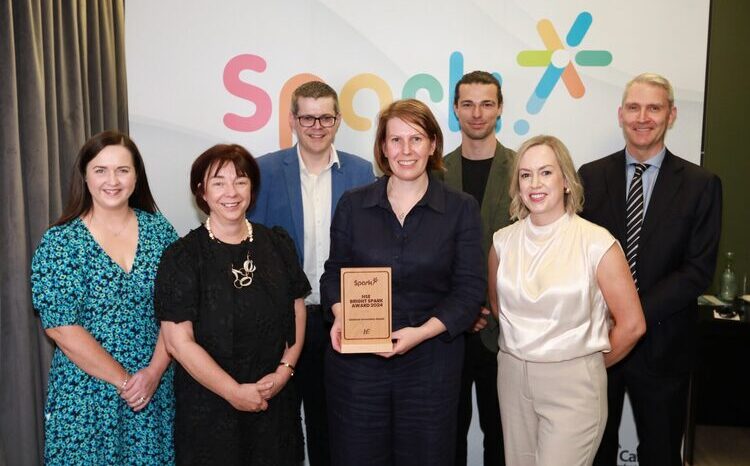Exclusive: £412.5m allocated to STPs for provider digitisation
- 23 August 2018

More than £400 million is to be allocated to sustainability and transformation partnerships (STPs) to bolster provider digitisation, Digital Health News can reveal.
A prospectus for the £412.5 million Health System Led Investment (HSLI) programme was issued on 10 August to all STP leaders, along with a letter from NHS England’s national director of operations and information, Matthew Swindells.
Digital Health News has seen a copy of this letter and the associated prospectus.
They reveal that the half billion of funding promised to improve technology in hospitals – first mentioned by health secretary Matt Hancock last month – will not be subject to a bidding process.
Instead, a set amount will be allocated to each sustainability and transformation partnership (STP).
STPs will be required to develop local plans detailing on which digital projects the cash will be spent in each of the three years of the programme.
But while the plans must be developed by STPs, Digital Health News understands the funding will flow to specific provider organisations.
The prospectus states STPs should avoid a ‘fair share’ approach to allocating funds to providers, adding that there could be “challenging conversations and difficult decisions” ahead.
Captitated funding
There are 44 sustainability and transformation partnerships – some of which have now involved into integrated care systems (ICSs) – and Digital Health News understand the funding allocation is on a capitated basis, meaning it reflects the number of citizens in each STP or ICS area.
The allocated money will be dished out in phases, with 25% given in 2018/19, another 25% given in 2019/20 and then the final 50% handed over in 2020/21.
At a national level, £104m is available in 2018/19, £92.4m in 2019/20 and £261.1m in 2020/21.
Projects will have to address one of six national priorities outlined in the prospectus:
- Deploying electronic patient record (EPR) solutions at scale across systems
- Extending system capacity management to improve hospital flow
- Improving system-wide staff rostering to reduce agency use and increase flexible working
- Improving the completeness of information available in non-acute settings with real time, coded data collection in community and mental health
- Improving ambulance and non-acute access to clinical information and support
- Sharing health and social care information
Potentially challenging timeframes
The documents reveal the money for each year “cannot be rolled over”, and that STPs have between 1 September and 5 October to submit their final investment proposals.
The documents offer assurances that the processing of these proposals will take no longer than four weeks. However, it is unclear how long it would then take for providers to get hold of the funds.
This means that there could potentially be a very short period of time in which organisations would be required to spend the cash for 2018/19.
Match funding
While STPs will be required to match fund the national investment, a Frequently Asked Questions document, also seen by Digital Health News, states that “there are no constraints in terms of type or timescale” for this.
It continues: “Local investment can be capital or revenue, and this can be in the same year as the national funding or a subsequent year.”
The document also states this local investment can be “cash or as an investment in kind – for example, releasing staff for training”.
Another question included in the document addresses whether the presence of a global digital exemplar (GDE) within an STP area impacted the funds allocated to it.
In response, NHS England said “such an approach was under consideration” but was ultimately not taken forward.
However, the prospectus reveals funding will not be awarded to projects attached to the GDE programme. There are currently 16 acute, three ambulance and seven mental health global digital exemplars.





8 Comments
People, Process and Technology:- The secrete of successful engagement and transformation.
If the wrong people are involved either as participants in the change or drivers of the change the change will fail. Stakeholder engagement is important, but proper stakeholder identification is VITAL.
Broken processes cannot be improved by technology, they may be made faster but the desired effect will not be achieved. In many cases the redesign of processes to meet the required outcomes can have a greater benefit than any investment in IT.
When you have the processes right and the right people involved, you can then make a case for the required technologies, if any.
I often use the SatNav principle. The SatNav knows where it is and can plan any number of different routes and types of route suitable for walking, car, bus, lorry and bike, BUT it has to have someone tell it what the expected destination is. If you do not know where you are going, how can you expect technology to get you there?!
Ah! The 3Ps (People, Processes, Products), my mantra for nearly 40 years. The bigger problem is getting someone in power to recognise the issue. Like an alcoholic, there is no cure until the afflicted person admits there is a problem. That person in this NHS case is Rt. Hon. Matt Hancock MP and unless he admits these are problems with ‘processes’ (he correctly recognises interoperability problems), this discussion is going nowhere. Some of the reasons he should recognise it and act are given in these leinks;
When conversation is better than computation.
https://www.ncbi.nlm.nih.gov/pubmed/10833164/
https://www.ncbi.nlm.nih.gov/pmc/articles/PMC61430/
The issue will not be solved by ‘throwing £ 487 m.-worth of technology at it’, as he intimates elsewhere but by recognising the root cause of the mainly communication issue in the NHS, he needs to have;
1. properly trained and motivated people
2. Redesigned processes
3. Use technology to support these processes when, and only when, they have been designed in conjunction with ALL stakeholders’ approval, not just that of techno-geeks
I have nearly 50 years in IT, Matt has none, to my knowledge, so whose advice should one follow?
Just a thought. Do the people in charge of all these things we are talking about ever read discussions like these? If not, we are probably wasting our time. As Mark Twain observed; ‘Everybody is talking about the weather,nobody is doing anything about it.’
Great.
STPs – which are bodies with no legal existence or accountability – to get miniscule funding (there are 44 of them and only 25% of the funds available in 2018/19 with no roll-over) to have plans involving a number of competing organisations prepared and submitted in 4 weeks – and then approved – and this year’s allocation completely spent in the next 6 months!
I totally agree that IT should support processes and enable change where change is needed – Terry, you’re right there!
This sort of thing does make me wonder whether anyone in the DoH, Cabinet, NHS England or NHS Digital lives in the real world?
PS most of the STPs are likely to be in deficit: which patient services will have to be sacrificed if they have to match funding?
‘None so blind as will not see’, ‘none so deaf as will not hear’. It usually tajes a disaster to make people sit up, watch and listen but NHS seems to be the exception. Patients die because of communications errors, not due to the computer as some say. It is due to sloppy process. Systems fall down dead from malware (the great Wannacry crash May 2017) and still nobody even blinks. In a big private company, the culprits of these sorts of event would be pilloried and ‘asked to leave’ the company. Even if allowed to stay, they would not be entrusted with anything vaguely important, such feeding the works’ cat. Alas, this does not apply to public sector cockups, following the adage after project failures ‘Punishment of the innocent and promotion of the guilty’.
See: http://wikibon.org/blog/this-project-management-joke-is-often-reality/
I agree completely Terry, it seems to be an institution bias or some kind of cognitive dissonance that maintains the same structures yet the mantra of ‘digitise everything’ to make ‘efficiencies’ is a logical fallacy from the outset. The rationale of digital systems is a bogus methodology sold on the remit of cost effectiveness;from my experience, magical thinking overvalues the actual role of the people rolling out such systems and then undervalues the maintenance and starting points – buying cheap, hiring and firing without understanding.
It is not the technology in hospitals that needs improving, it is the PROCESSES that technology supports that need creating to cater for health care. At present, as anyone will tell you, they are a shambles. Note, I am not talking here about the quality of care, which is second to none, but the myriad communications that surround that care.
Footnote: I am now getting weary of trying to get this message across, so will somebody please do something about it?
Sadly, the quality of care is no longer “second to none”. At best it is a patchy postcode lottery. The stats around cancer care are worsening as demand is increasing year on year but resources are, at best, barely keeping up with inflation.
The English NHS was starting to catch up other EU counties for cancer outcomes, but is now sadly falling behind with us [laced 19th out of 27 and well below the EU average. http://cancercomparator.abpi.org.uk/survival.shtml
Comments are closed.